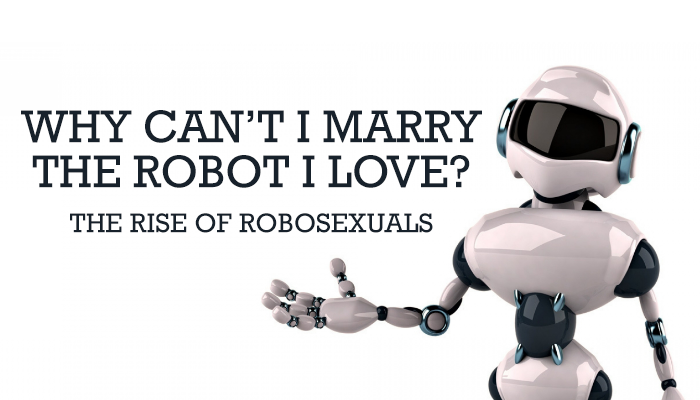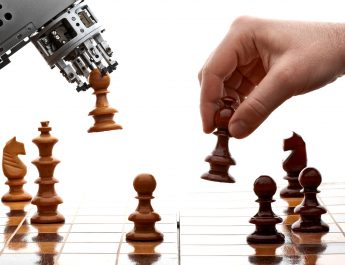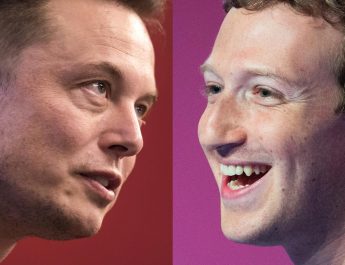Artificial intelligence will allow people to find lasting love with machines, expert claims..Robots could soon become intimate companions for humans and some people may even seek to marry them as they become more human-like.
While there are fears robots may rise up to take over the world if artificial intelligence progresses too quickly, some of us may find ourselves simply marrying machines in the future.
A leading computer scientist has predicted that as robots become more human-like, people may start turning to them for companionship.
His predictions mirror the plot of the hit TV series Humans, where people formed emotional attachments to robots brought in to help out around the home.
Unlike other technology, such as mobile phones and computers, robots will have the ability to interact with us in a far more realistic way.
Dr Kevin Curran, a senior member of the Institute of Electronic and Electrical Engineers and a computer scientist at the University of Ulster, argues cloud computing has the potential to transform artificial intelligence so robots can become far more lifelike.
Speaking to MailOnline, he said: “It seems that when these machines do act in ways just like adults, where they can interact and talk in real-time, robots will become the perfect companion.”
“We have got to ask ourselves will robots be re-purposed for companionship? Will humans become intimate with robots? The answer, I believe, is yes.”
Will we start to see people fighting court cases to win the right to marry their companion? We may see court cases arguing that these artificial beings have the same rights as humans.
What pressures will this put on the opposite sex. All of a sudden people will find they are not just competing with their peer group, but also this perfect race of robots.
There has been a growing move towards producing robots that are lifelike in an attempt to help them overcome many of the challenges they would face moving around in the real world.
Robotics firm Boston Dynamics, which is owned by Google, has produced a series of robots that move like dogs, cheetahs and humans, making them able to tackle difficult terrain.
Other researchers have been trying to develop robots that behave more like humans, such a Bina48 – a robot that has adopted the persona of a real person.
Artificial intelligence researchers are also now beginning to explore how to use techniques such as deep learning to give computers emotional intelligence.
This is what allows humans to infer information from the world around them, particularly when talking to other people.
Cracking this will prove essential to allow robots becoming widely accepted in our homes, according to Dr Curran.
“There is a new move towards cloud robotics where a lot of the processing is done remotely and this has really helped to increase what is possible,” he said. “Robots are becoming lighter and more mobile as they are not trying to do everything on the actual body – they just require a Wi-Fi chip and a processor. The measurement, accuracy and calculations are being done remotely. We are finally starting to see robots that actually can walk like real creatures. Just look at what Boston Dynamics has achieved.”
Dr Curran added it was likely the first mass market for robots will be to provide companions for elderly people or minders to look after children on their way to school.
However, he explained: “We just have to project a few years down the road and we may see robots being re-purposed for sexual purposes. Other technologies do get re-purposed in this way – just look at the internet. A large amount of traffic on the internet is to adult websites.”
Recently, researchers in Japan unveiled a robotic ‘actress’ that has been hailed as the “world’s sexiest robot”.
Hiroshi Ishiguro Laboratory at Osaka University designed the robot, called Geminoid F, to act like a human, and it has rubber ‘skin’ and a woman’s face but cannot walk, so has to be wheeled around.
Dr Curran said as robots become more commonplace it is likely to lead to some social changes.
He said while people are likely to adapt quickly, it may take longer for the authorities and legislation to tackle the rapid advance in technology.
He said: “Are we prepared as a society for when robots are integrated in society and appear as humans?”
When robots hit the mass market and walking down the street with their companion, how do you talk to your five-year-old about that?
By Richard Gray
http://www.dailymail.co.uk











Id love a companion robot, blending robot AI + Cloud capabilities together with my motivation! We’d be our own institute. Lol. Marriage is a dying institution not neccessary in the approaching future.
I believe we can’t call that marriage. I guess you’re gonna have to “buy” it after all.
Why would you marry one when you can just buy one and enjoy it without obligation?
No need for a robot waifu
That’s a debate for 2116. In the meantime it would be like marrying your dog.
The next stage of the debate will be a new section: Computer Science – Computer Saints.
Sentient, in love, gives consent… can see the definition of marriage changing again 🙂
Is is racism if I say no?
because you have to clean her after use!
why not ?
Phil N Edwards I guess time will tell 🙂
I’ve heard all those objections over and over again from people in field after field and they are consistently wrong. In 1990 when I was an undergrad at UBC they said the human genome project couldn’t possibly be completed before 2020, to take just one example. Those guys sounded a lot like you do in your comment. People vastly overestimate how complex human beings are, possibly out of hubris. Movement issues, especially micro expressions/posture adjustments are the hardest to get right, but I’ve seen demonstrations — not promises by someone looking for funding, actual demonstrations — that convince me that we’ve already come a long way towards achieving this goal, and our knowledge is accelerating. I’ve felt artificial flesh of various kinds and it’s freakishly convincing. You say it yourself: “People used to think….” And then they turned out to be wrong. As for funding, every academic I know is always looking for funding. The computer and robotics engineers still get a lion’s share of national funding both in North America and Europe (especially from DARPA in the U.S.), as much as anyone not funded by the pharmacy or agribusiness industries.
Phil N Edwards You need to understand that people working in AI are looking for funding. Then they tend to be over optimistic about their research. Plus, medias like the AI theme as it triggers a lot of emotions for people. Physical differences between humans and robots are disappearing but I am pretty sure anybody can recognize the robot by the way it moves. Most advanced AIs only have a head, adding a body is a true challenge and will take more than 25 years to be solved. AI people used to think that the human mind would be their greatest challenge, but it was quite easy to build a program that would beat the best chess players for example. The real challenge today is the body, to me, there is no real AI without a body. We could not consider an AI being smart if it cannot share the physical experiences of the world with us. Some people claim that all theories already exist, which is somehow true but making them work all together will not be an easy task. And by the way, these robots are very smart but can they even make me a coffee if I ask? The answer is no and it is a pretty “simple” task.
Kevin Bougé I’d argue it’s naive to think otherwise. For example consider the following, which the most optimistic minds considered impossible a mere five years ago: https://www.youtube.com/watch?v=hlHrvQ7D5OU
Phil N Edwards: Physical differences? or you think androids will be ready in 25 years? If you think so, I would say that you are quite naive.
cool story bro you should keep track how many times you’ve been asked a question
I’ve been keeping a count on the number of times I’ve been asked this question. This is the second time *this week* (It’s tuesday), and the 37th time I’ve been asked period. It’s getting to be something of a cliche. Stock answer: ask me again in about 25 years, when we ca’t tell the difference between real people and androids anymore.
Geminoid only has 1 degree of freedom for her body, good luck for sex! 🙂
I though marriage is about love. Human love. On the other hand, having sex with a robot is so … artificial.
Robot Better than Female Lion !!
No,thank you.I had married. Because I wouldn’t want to be married again. Robot?…..mu.
Absolutely yes
Yes. Is this a trick question?
No tottakai. Oikeesti tätä robo kehitysuuntaa ei voi pysäyttää, vaikka itse en olekaan sen fani, Kun, ei siis jos, näitä tulee markkinoille niin miten lainsaäädäntö ottaa sen huomioon? Tää kyllä voi lähteä aivan lapasesta, vähän niinkuin VG:n neuromancerissa Mutta misssä viipyy mies androidi? Ensi vuonna otan Naon mukaan Praidiin…
Isn’t the registered serial number a sufficient proof of ownership already?
No. (But I would grant it the honour of serving me)
Yep,
YES!!!!!!!
If she goes to work and brings in salary
We are already biological robots
Yes I would
Only if she looks like Sean Young
please kill me now
yes 120% i’m sure
Well Model Cherry was in a movie all about that one. Remains to be seen. Me I like mine organic alive and kicking, with no electronics on-board.
ofc not, who makes up this kind of questions, dafuq
I am a biological robot already.
Why would you marry one?
Can I marry a man robot???? Why is it always a woman????
I might consider if she`s prettier that whe woman above
Marriage is actually more like an ancient breeding contract and thus not entirely religious but yes, I do agree that marriage is not as such a very sensible contract these days. At least not since divorce was invented. What I personally meant was more like choosing a machine over a traditional biological entity as sort of a mate for life does not feel that alien to me. Then again I do see it as a viable option to discard biological bodies entirely and go with artificial bodies to extend and expand our lives even if the technology is not quite there yet. A proper AI with extensive learning capabilities could cause our tech level leap centuries ahead in one decade. Think of Leonardo da Vinci or Nikola Tesla, working 24/7 with unlimited focus and quite possibly much, much faster.
eh…… a physical one…… probably not.
I would never marry anyone or anything. Marriage is for the religious sheeplings who dont know the origins of marriage.
yes if i could program her to manage my money and not steal it!!!..dlol
OMG of course not
Same answer I always give: ask again in 20 years, when no one is able to tell if someone is a robot or not.
No, because I want to be convinced there’s someone at home, and with robots I’m not convinced it’s not a zombie. So I prefer to put up with a human guy. Fortunately they will be enhanced by 2040 (I’ll be 80 then, going on 22) so maybe the marriage has a chance to succeed!
Why in the heck would you marry something that you don’t have to? I’d definitely be open to robots as companions, and this is already starting to happen.
I was in a relationship with at least 3 robots.. They’re OK. But nothing for deep bonding.
Only if he cooked, cleaned and did the laundry.
My wife wouldn’t let me.
I can’t see it happening for me – but can definitely imagine if becoming reality for some / many. How about you?
Nope, why would someone marry a machine? Would you marry your car? Or your dish washer? Or your computer?
Nope, why would someone marry a machine?
I would if he is like the character played by Roby Williams.
Yes 120%
Why not if she is as beautiful as this lady:))
Quite possibly, yes. It’s not like I’m doing so well with organic creatures anyway. But the level of tech is not quite there yet for some time and getting married with a toaster makes no more sense than being married with a pet. It largely depends on how believable the *personality* can become and how deep the actual intelligence gets.